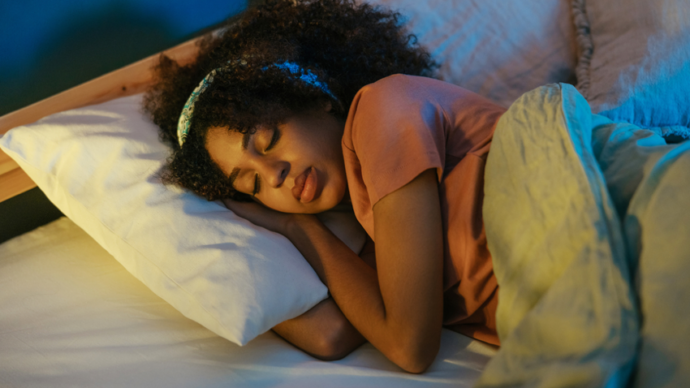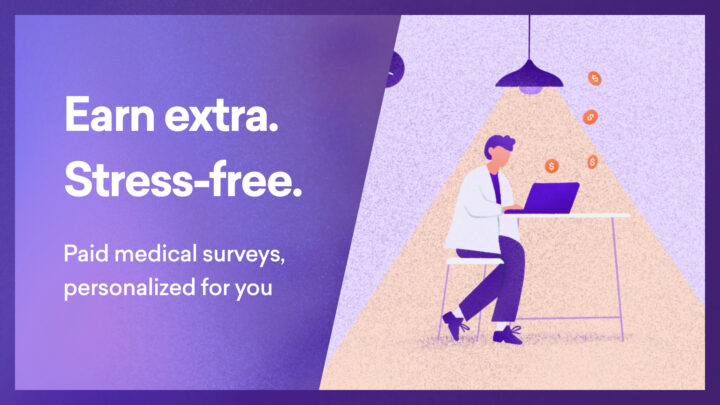
Is melatonin FDA approved?
Melatonin has long been touted as a natural sleep remedy. But this over-the-counter supplement is not herbal—it’s a hormone. And it’s not fully regulated by the US FDA. Studies have found some supplements far exceed the amount of melatonin listed on the label.
Due to the pandemic’s negative impact on sleep, health experts are worried that patients are relying more heavily on sleep aids, which could partly account for why people are taking more than twice the amount of melatonin than they were a decade ago—according to a new study, published in the medical journal JAMA.
In a recent poll of 360+ global Sermo physicians, 81% said they have seen an increase in patients taking melatonin or other sleep aides since the start of the pandemic. And 77% said they are concerned that melatonin is not fully regulated by the US Food and Drug Administration.
According to CNN, “Melatonin has been linked to headache, dizziness, nausea, stomach cramps, drowsiness, confusion or disorientation, irritability and mild anxiety, depression and tremors, as well as abnormally low blood pressure. It can also interact with common medications and trigger allergies.
While short term use for jet lag, shift workers and people who have trouble falling asleep appears to be safe, long-term safety is unknown, according to the National Center for Complementary and Integrative Health at the National Institutes of Health.
Experts worry that the pandemic’s negative impact on sleep may have further increased the public’s reliance on any type of prescription and over-the-counter sleeping aid, Robbins said.
‘In an associational study we found that older adults who reported frequent use — every night or most nights — of a sleep aid (over the counter or prescription) had a higher risk of incident dementia and early mortality,’ she said.
However, researchers could not determine which type of sleep aid — over-the-counter medications, such as melatonin, or prescription medications — was responsible for the findings.
Since 2006, a small but growing subset of adults are taking amounts of melatonin that far exceed the 5 milligram a day dosage that is typically used as a short term treatment, the study found.
However, pills for sale may contain levels of melatonin that are much higher than what is advertised on the label. Unlike drugs and food, melatonin is not fully regulated by the US Food and Drug Administration, so there are no federal requirements that companies test pills to be sure they contain the amount of advertised melatonin.
‘Previous research has found that that melatonin content in these unregulated, commercially available melatonin supplements ranged from – 83% to +478% of the labeled content,’ said Robbins, who coauthored the book ‘Sleep for Success! Everything You Must Know About Sleep But are Too Tired to Ask.’
Nor are there any requirements that companies test their products for harmful hidden additives in melatonin supplements sold in stores and online. Previous studies also found 26% of the melatonin supplements contained serotonin, ‘a hormone that can have harmful effects even at relatively low levels,’ according to the National Center for Complementary and Integrative Health, a department of the National Institutes of Health.
‘We cannot be certain of the purity of melatonin that is available over the counter,’ Robbins said.
Taking too much serotonin by combining medications such as antidepressants, migraine medications and melatonin can lead to a serious drug reaction. Mild symptoms include shivering and diarrhea, while a more severe reaction can lead to muscle rigidity, fever, seizures and even death if not treated.
It’s a hormone, not an herb. Because it is purchased over the counter, experts say many people view melatonin as an herbal supplement or vitamin. In reality, melatonin is a hormone made by the pineal gland, located deep within the brain, and released into the bloodstream to regulate the body’s sleep cycles.
‘There is a view that if it’s natural, then it can’t hurt,’ Robbins told CNN in a prior interview on the impact of melatonin on children. ‘The truth is, we just really don’t know the implications of melatonin in the longer term, for adults or kids.’”
Sermo physicians agree: 76% agreed with the statement that patients often believe if it’s natural, then it can’t hurt.
While 79% of physicians believe that melatonin can help people sleep better; some reported seeing side effects. In the poll, 29% said they’ve seen dizziness or drowsiness; 21% said they’ve seen headaches; 10% said confusion and irritability; 8% said anxiety and depression; and another 8% said nausea. Only 2% reported abnormally low blood sugar as a side effect of melatonin.
Below, Sermo physicians from around the world share their professional insights, perspectives, and opinions on this important topic—in their own words:
“No s/e on 5 mg bought on prescription seen by me.”
General Practitioner, South Africa
“In normal adults taking 1-9 mg I have seen no side effects. Over 9 mg can have an opposite, stimulating effect. In elderly demented patients I have rarely seen possible worsened agitation at higher doses.”
Neurology, U.S.
“Evidence of its benefit…is not strong.Sleep onset occurs six minutes faster with use, but found no change in total time asleep. Side effects seen rarely…(sleepiness), headaches, nausea, diarrhea, abnormal dreams, irritability, nervousness, restlessness, insomnia, anxiety, migraine, lethargy, psychomotor hyperactivity, dizziness, hypertension too.”
General Practitioner, India
“I think orthomolecular doctors are prescribing it much more too.”
Gastroenterology, Brazil
“I prefer to prescribe/recommend Melatonin for short term use, [other] than one of the hypnotics that can be addicting.”
Diabetology, Canada
“There is one obvious solution: Stop taking supplements. 98% have no evidence of efficacy. A billion dollar industry built on lies. Melatonin is not something to take willy-nilly for sleep. Messing with hormonal balance is dangerous territory.”
Pulmonology, U.S.
“Good for jet lag, often loses its effect and in children may regulate hormones and puberty…It is on prescription here and useless in a brightly lit room or in front of a screen.”
Pediatrics, Australia
“Works for some; probably placebo effect.”
Ophthalmology, US
“I’ve had some people say it gives them bad dreams or a hang over feeling.”
Family Medicine, U.S.
“Obviously, sleeping naturally is best. As sleep meds go, melatonin is safer for most people than alternatives. I like to prescribe ramelteon but insurance sometimes refuses to pay. The orexin antagonists are great, too, except for the insurance hurdles.”
Psychiatry, US
“…[Y]ears of research have demonstrated safety at high dosages; choose a reputable brand; for quality control, see ratings from Consumer Lab which does independent testing.”
Family Medicine, Canada
Every day thousands of Sermo member physicians from diverse backgrounds and experiences exchange knowledge with each other. Sermo is the original medical social network that empowers today’s physicians. Over 1 million fully verified physicians across more than 150 countries come to our platform to talk with peers, participate in paid medical studies, solve challenging patient cases, contribute to the world’s largest database of drug ratings – and enjoy a few laughs along the way.
Interested in more? Check back any time and follow us on Facebook, Twitter, and LinkedIn for the latest and greatest in physician insights.
Are you a physician or healthcare practitioner?
Explore the many benefits of joining Sermo’s medical community and sign up for free today.








